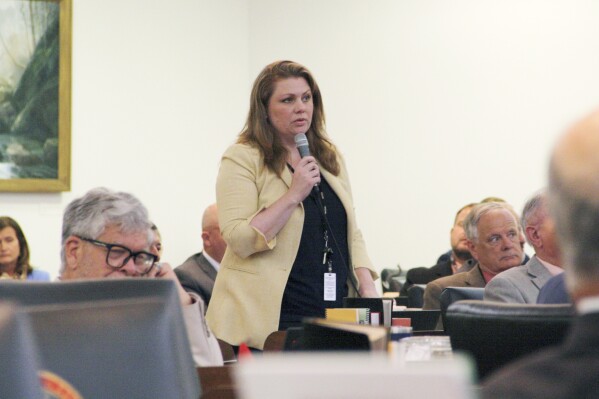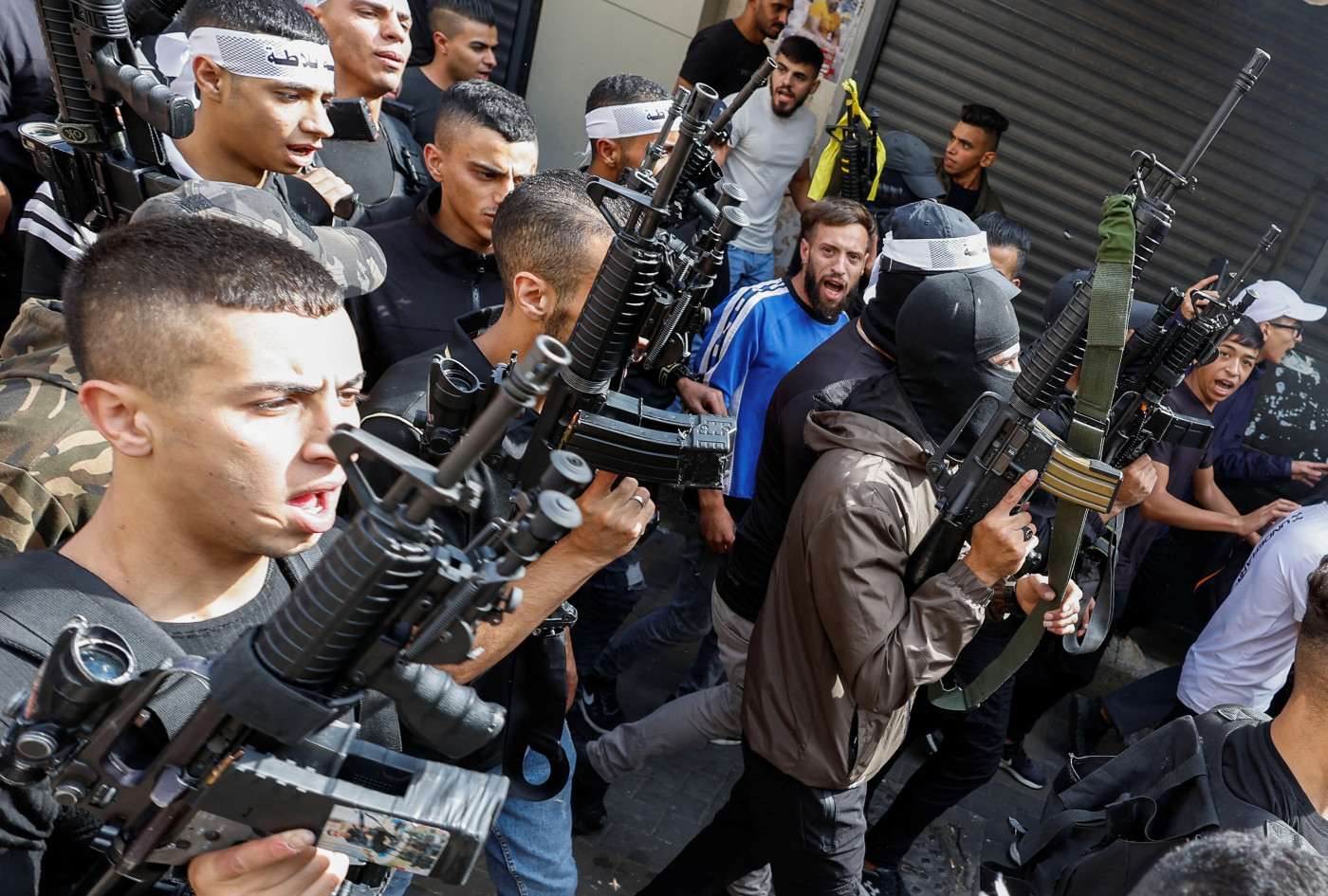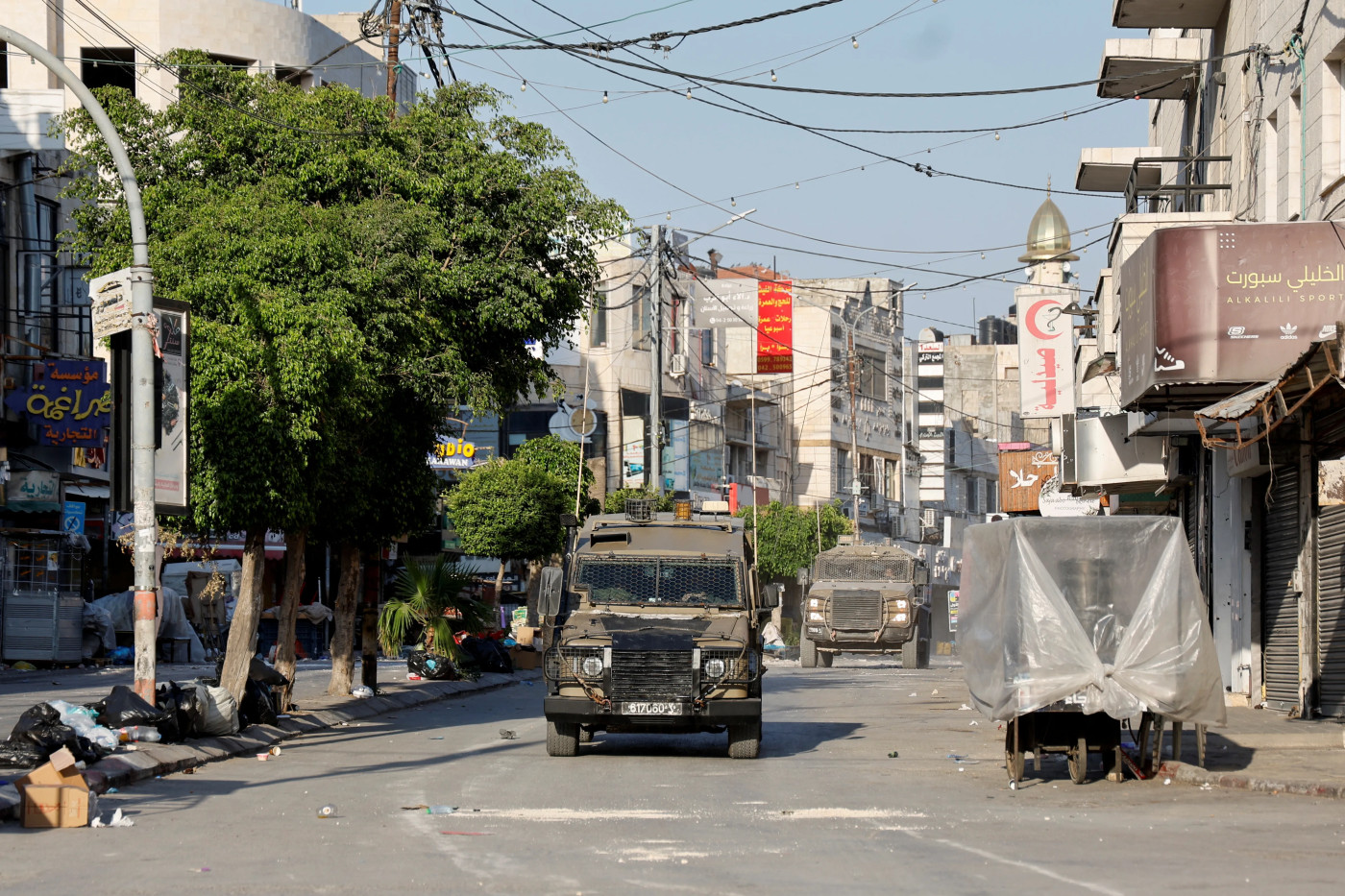Hamas Says Ceasefire Deal They Received Is Nothing Like Biden Described
A senior Hamas official has shared with Newsweek a report detailing the Palestinian movement's concerns over apparent differences between the ceasefire agreement unveiled by President Joe Biden last week and the deal it later received in writing.
The six-point explanatory note, dated June 5 and shared Thursday with Newsweek by spokesperson Bassem Naim, was said to have been issued because "it became clear to us that the enemy's position is unclear," as well as "the contradictory statements of its senior officials, the Biden administration's statements focused on that the issue or obstacle lies in the movement's agreement, and the US administration's media, political and diplomatic activity to focus on this and reduce the picture in a confused manner."
The agreement, as presented by Biden, would entail three phases, the first of which would see a six-week ceasefire along with the withdrawal of Israeli forces from populated areas of Gaza, the release of an unspecified number of Hamas-held hostages in exchange for hundreds of Palestinians in Israeli prisons and a surge of 600 trucks of humanitarian aid into the war-torn Palestinian territory.
Negotiations would also commence toward phase two, which would include the release of all remaining living Hamas captives, the total withdrawal of Israeli troops from Gaza and a permanent ceasefire. Finally, a Gaza reconstruction plan would begin, and the remains of dead hostages would be returned to their families.
Hamas is not the only actor to raise concerns about apparent inconsistencies, however.
The White House has portrayed the road map as being fully aligned with Israel's proposal to end the conflict, but clashing narratives have since emerged over the contents of the proposal, how the U.S. leader described it and what it may actually entail.
In its first reaction to Biden's speech, Hamas said Friday it "positively views" the deal, confirming its "readiness to deal positively and in a constructive manner with any proposal that is based on the permanent ceasefire and the full withdrawal [of Israeli forces] from the Gaza Strip, the reconstruction [of Gaza], and the return of the displaced to their places, along with the fulfillment of a genuine prisoner swap deal if the occupation clearly announces commitment to such deal."
A statement shared with Newsweek shortly afterward by a spokesperson for Israeli Prime Minister Benjamin Netanyahu's office did not directly endorse the plan, however, and reaffirmed the need to achieve Israel's key wartime goals.
"The Israeli government is united in the desire to return our abductees as soon as possible and is working to achieve this goal," the Israeli premier office's spokesperson said. "Therefore, the Prime Minister authorized the negotiating team to present an outline for achieving this goal, while insisting that the war will not end until all of its goals are achieved, including the return of all our abductees and the elimination of Hamas' military and governmental capabilities."
Netanyahu further emphasized his determination to secure these two objectives in a video address and follow-up statement on Monday. That same day, Israeli government spokesperson David Mencer told reporters that Netanyahu had informed Knesset members that what Biden had presented was only a "partial" path toward a deal.
Still, White House National Security Council Strategic Communications Director John Kirby asserted on Monday that there were no "gaps" between the U.S. and Israel on the deal, though he acknowledged that what the U.S. leader had announced did not include "every detail" of the plan.
In an interview published by Time, Biden put the onus squarely on Hamas for moving forward with a ceasefire, but he also suggested that critics arguing Netanyahu was deliberately dragging out the war for domestic political purposes have "every reason" to come to that conclusion.
Amid the conflicting narratives over the proposal, the first point of the explanatory note issued by Hamas emphasized that any deal must include "a permanent cessation of aggression and shooting, a complete withdrawal from Gaza, allowing the return of the displaced, the flow of humanitarian aid, reconstruction, and a serious prisoner swap deal."
The group said it saw these conditions present in the previous ceasefire proposal, mediated by Egypt and Qatar and accepted by the group on May 6. Israeli officials argued then, too, however, that the deal at hand did not meet Israel's demands and, as the second point of the Hamas note pointed out, Netanyahu ordered an offensive into the southern Gaza city of Rafah.
"The occupation rejected the mediators' proposal and responded to it with a blatant aggression on Rafah and the occupation of the crossing, and carried out many massacres and burned the tents of the displaced people, and continued the war of starvation," the Hamas note said, "which is a systematic policy to exterminate the Palestinian people, all of which led to disrupting the efforts of the mediators."
When Biden went public with the tenets of the latest deal, Hamas' reaction was rooted in the notion that "they are consistent with the May 6 paper and contain the required foundations, most importantly a permanent ceasefire and full withdrawal from Gaza," the group said in the third point of its note.
However, as outlined in Hamas' fourth point, the group said it turned out the actual deal at hand "was devoid of the positive foundations mentioned in Biden's statements, and that there is a difference between what is in the paper and what Biden stated, which caused much confusion and controversy, whether what Biden talked about is his personal interpretation of the paper or oral agreements with Israeli parties or otherwise."
"After examining the content of the Israeli paper, it became clear that it is a paper that does not lay the correct foundations for the required agreement," the Hamas note said, "as it does not guarantee a permanent ceasefire, but rather a temporary ceasefire, and it does not closely link the three stages stipulated."
"On the contrary," the group added, "it destroyed the bridges that transfer the agreement from one stage to another in order to disrupt the unity of the agreement with all its stages and reduce it to one stage in which the aggression stops temporarily and its forces remain on the land of the Gaza Strip, and the occupation gets in return the segment of the prisoners it cares about and then resumes the war of annihilation against our people."
In its fifth point, Hamas emphasized that the group and allied factions remained committed to negotiating a lasting ceasefire, but that "there is no meaning to any agreement that does not explicitly provide for a permanent ceasefire and no meaning to an agreement that allows the occupation forces to remain on our land and only achieves what the occupation wants to release its prisoners and continue its war of extermination and starvation against our people."
Finally, in the sixth point, the group warned against "the dangers" of issuing a United Nations Security Council resolution on the issue before the matter was resolved by the two warring parties, as well as any international efforts to put pressure on Palestinian factions at war with Israel.
Still, Hamas emphasized that it maintains "its positive stance towards Biden's statements," which the group said "are consistent with the foundations that the movement accepts."
The Hamas note asserted that the group "believes that Biden must ensure that the occupation government agrees to them and that they are reflected in the text of the agreement in order for it to be valid for approval and proceed with its implementation according to the agreed stages."
Fighting has persisted in Gaza just one day ahead of the eight-month mark of a conflict sparked by a Hamas-led surprise attack conducted against Israel on October 7. The ensuing violence has marked the longest and deadliest war in the decades-long Israeli-Palestinian conflict, which had witnessed record levels of violence even prior to the current war.
Israeli officials estimate that around 1,200 people, mostly civilians, were killed during the initial attack led by Hamas, and that nearly 300 Israeli military personnel have died in the ensuing conflict. Palestinian officials in Hamas-led Gaza have counted more than 36,500 killed, saying the majority were women and children, though the figures do not distinguish between combatants and non-combatants.
Both sides have frequently accused one another of committing war crimes while denying that their own forces were engaged in abuses. The International Criminal Court (ICC) has charged both Israeli and Hamas leadership with violations but neither side has recognized the ruling.
The Israel Defense Forces (IDF) drew further scrutiny on Thursday as it announced a strike on a school operated by the U.N. Relief and Works Agency (UNRWA) in Nuseirat, claiming the site was being used by fighters of Hamas and Palestinian Islamic Jihad. The IDF also announced the alleged uncovering of a covert military tunnel in a child's room in Rafah as well as ongoing ground operations in the southern city and airstrikes and tank fire against other targets in eastern Bureij and Deir al-Balah in central Gaza.
Hamas' military wing, the Al-Qassam Brigades, claimed more than a dozen attacks using mortars, rockets, anti-tank missiles and explosive devices against IDF positions in Rafah, eastern Bureij and Deir al-Balah.
In one particularly notable incident, the Al-Qassam Brigades claimed to have penetrated the security fence between Gaza and Israel in Rafah, attacking an IDF division headquarters. The IDF acknowledged that fighters had approached the fence and opened fire but asserted that they were eliminated by aerial and tank fire, denying that they had crossed the boundary from which Hamas conducted its unprecedented attack eight months ago.
"We emphasize that the terrorists did not cross the fence built along the Gaza Strip," the IDF said. "The incident is under review."
Disclaimer: The copyright of this article belongs to the original author. Reposting this article is solely for the purpose of information dissemination and does not constitute any investment advice. If there is any infringement, please contact us immediately. We will make corrections or deletions as necessary. Thank you.



